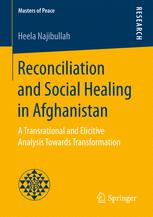

Most ebook files are in PDF format, so you can easily read them using various software such as Foxit Reader or directly on the Google Chrome browser.
Some ebook files are released by publishers in other formats such as .awz, .mobi, .epub, .fb2, etc. You may need to install specific software to read these formats on mobile/PC, such as Calibre.
Please read the tutorial at this link: https://ebookbell.com/faq
We offer FREE conversion to the popular formats you request; however, this may take some time. Therefore, right after payment, please email us, and we will try to provide the service as quickly as possible.
For some exceptional file formats or broken links (if any), please refrain from opening any disputes. Instead, email us first, and we will try to assist within a maximum of 6 hours.
EbookBell Team

0.0
0 reviewsHeela Najibullah analyzes the Afghan reconciliation processes through the lenses of transrational peace philosophy and Elicitive Conflict Transformation. The research highlights two Afghan governments reconciliation processes in 1986 and 2010 and underlines the political events that shaped the 1986 National Reconciliation Policy, drawing lessons for future processes. The author points out the historical and geopolitical patterns indicating regional and global stakeholders involvement in Afghan politics. Social healing through a middle-out approach is the missing and yet crucial component to achieve sustainable reconciliation in Afghanistan.